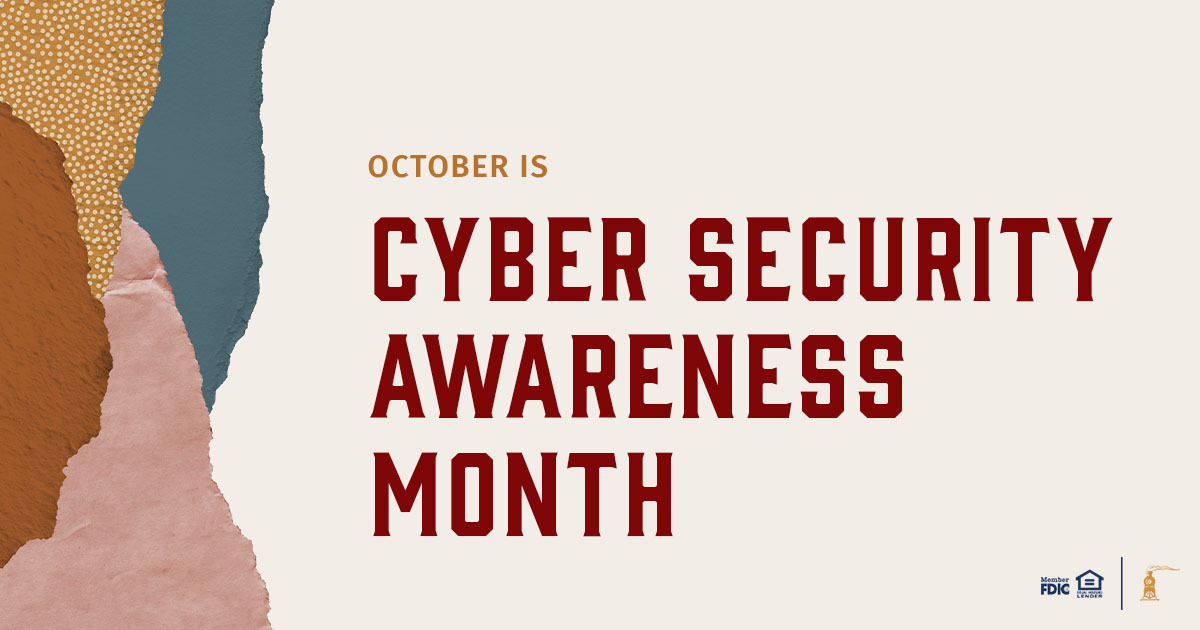It’s cyber awareness month and while it’s always good to learn about new ways to stay safe online, it’s especially relevant this month. Check out our tips below for ways to say safe while you’re using the internet or apps.
First – let’s learn a little about what it means to be cyber-aware. Cyber awareness refers to the level of awareness and understanding end users have about cybersecurity best practices and the cyber threats that their networks or organizations face every day. Now let’s get into some tips.
Software Updates
Software updates are necessary to keep computers, mobile devices and tablets running smoothly — and they may lower security vulnerabilities.
Data breaches, hacks, cyber-attacks and identity theft have all been in the news. One of the biggest cybersecurity attacks targeted SolarWinds, a company that provides monitoring and management tools for networks and infrastructures. The 2019-2020 attack sent a wave of malicious software to organizations using Solar Winds’ Orion network IT management system. Threat actors used the hack to gain access and monitor security from large government organizations — such as Homeland Security — and private organizations such as Microsoft, Intel, Deloitte and Cisco.
While threat actors continue to come up with new methods to steal information and gain access to systems, there are some simple, preventative measures to help stop them. Updating software is one such layer of protection.
Ransomware
Ransomware is a type of malware, or malicious software, that locks up a victim’s data or computing device and threatens to keep it locked — or worse — unless the victim pays the attacker a ransom. In 2021, ransomware attacks represented 21 percent of all cyberattacks and cost victims an estimated USD 20 billion overall.
Always double-check an email to make sure it’s legitimate, and be aware of suspicious phone calls.
Phishing
Phishing is a cybercrime in which a target or targets are contacted by email, telephone or text message by someone posing as a legitimate institution to lure individuals into providing sensitive data such as personally identifiable information, banking and credit card details, and passwords.
The information is then used to access important accounts and can result in identity theft and financial loss.
The Importance of Strong, Secure Passwords.
Unauthorized access is a potentially major problem for anyone who uses a computer or high-tech devices such as smartphones or tablets. The consequences for victims of these break-ins can include the loss of valuable data such as presentations, emails, and photos. Victims may also have their bank account information, money, or even their identity stolen. Moreover, unauthorized users may use someone else’s computer to break the law, which could put the victim in legal trouble.
If you ever have any questions about cybersecurity or ways to stay safe online, speak with your local banker.

